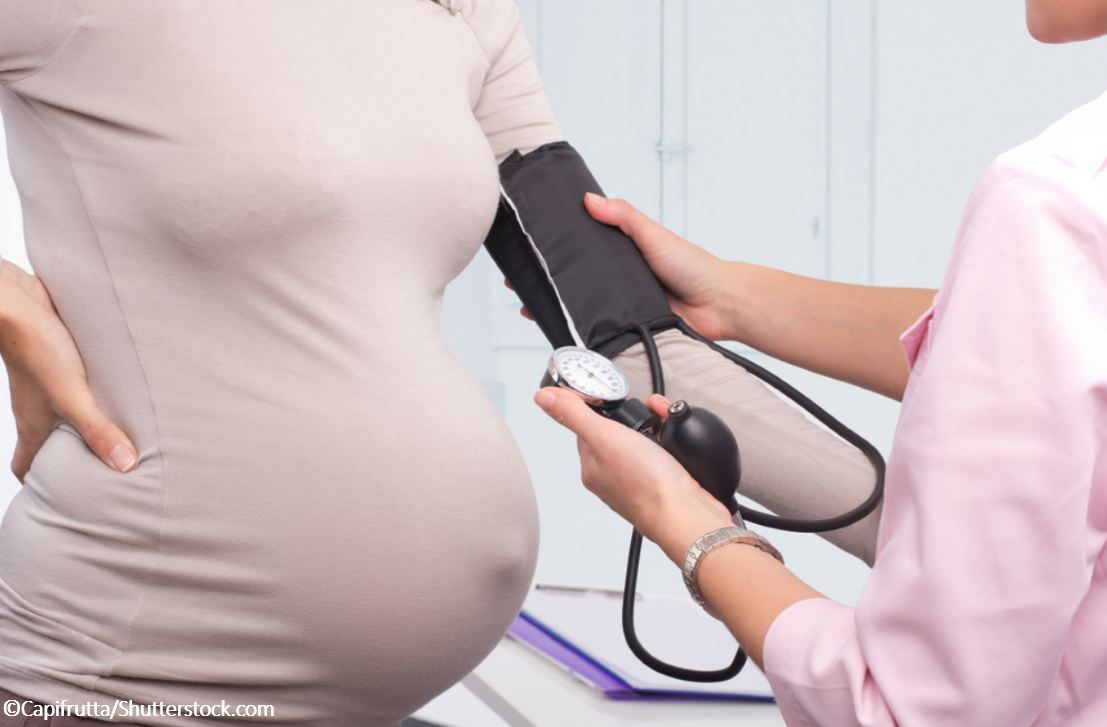- Clinical Technology
- Adult Immunization
- Hepatology
- Pediatric Immunization
- Screening
- Psychiatry
- Allergy
- Women's Health
- Cardiology
- Pediatrics
- Dermatology
- Endocrinology
- Pain Management
- Gastroenterology
- Infectious Disease
- Obesity Medicine
- Rheumatology
- Nephrology
- Neurology
- Pulmonology
COVID-19 Infection in Second Trimester May Increase Risk of Preeclampsia, New Study Finds
Data presented at ACOG 2024 suggest SARS-CoV-2 infection early in pregnancy can lead to a higher likelihood of preeclampsia, as well as more severe disease.
Women infected with SARS-CoV-2 in the early months of pregnancy are at an approximately 50% greater risk of developing preeclampsia, according to new findings presented at the American College of Obstetrics & Gynecology (ACOG) 2024 Annual Clinical & Scientific Meeting in San Francisco, CA, May 17-19, 2024.1
©Capifrutta/shutterstock.com

A team of US-based investigators, led by Heidi K Leftwich, DO, of the University of Massachusetts Chan Medical School, presented findings from a cohort analysis showing women who test positive for COVID-19 in their second trimester are significantly more likely to develop preeclampsia vs noninfected peers.1 The data may help inform preventive health discussions with women planning pregnancy, as well as add to understanding of the overall health effect of SARS-CoV-2 on pregnant women.
Prior research has indicated an association between COVID-19 and preeclampsia risk, which investigators have connected to mechanisms including the virus' direct effect on trophoblast function and the arterial wall, the exaggerated inflammatory response of pregnant women to the virus, and SARS-CoV-2 myocardial injury, among other interactions.2
Leftwich and colleagues conducted their retrospective cohort analysis including patients receiving prenatal care at a single academic hospital between January 2019 – December 2022. The study's primary outcome was the rate and severity of preeclampsia and secondary outcomes included specific characteristics of placental pathology.
“With COVID-19 becoming more endemic, trimester-specific infection risks are important to study,” Leftwich and colleagues wrote. “Here, we examine the effect of SARS-CoV-2 positivity by trimester on development of preeclampsia.”1
The team’s analysis included 6174 patients who met inclusion criteria; approximately 10% (n = 649) tested positive for SARS-CoV-2 during their pregnancy. Among those patients, SARS-CoV-2 infection occurred most frequently in the second trimester (40.8%), followed by the third (39.8%) and first (19.4%).1
Investigators observed greater preeclampsia rates in pregnant women infected in the first (19.2%) and second (18.2%) trimesters, compared to women not infected during their pregnancy (11.7%; P = .001). The rate of preeclampsia was actually slightly lower among women infected in their third trimester (11.2%).1
Following adjustment for potential confounding variables, Leftwich and colleagues reported that women who tested positive for SARS-CoV-2 were 48% more likely to develop preeclampsia than those not infected by the virus (95% CI, 1.04 – 2.11; P = .005). The severity of preeclampsia was increased with SARS-CoV-2 infection in any trimester of pregnancy versus no infection (P = .008); however, the association was only significantly greater among women infected in the first trimester (odds ratio [OR], 6.55; 95% CI, 1.95 – 22.55; P = .003).1
The team also observed a 63% increased risk of meconium-stained placenta in pregnant women who were infected during their second trimester (95% CI, 1.01 – 2.61; P = .044). Investigators concluded that women infected with SARS-CoV-2 in either the first or second trimester of pregnancy experienced higher rates of preeclampsia and with more severe characteristics. They noted the finding is consistent with the timing of preeclampsia pathogenesis in the late first and early second trimester.
“This finding helps clarify conflicting studies versus the risk of preeclampsia with SARS-CoV-2 infection in that this risk may be trimester specific and can help aid in our counseling and proposed future research,” investigators concluded.1
References
Leftwich HK, Hillman M, Khan L, Patel J, et al. Trimester-specific SARS-CoV-2 infection and the association with preeclampsia. Poster presented at: American College of Obstetrics & Gynecology 2024 Annual Clinical & Scientific Meeting; San Francisco, CA; May 17 – 19, 2024. Accessed
González-Vanegas O, Martinez-Perez O. SARS-CoV-2 infection and preeclampsia-how an infection can help us know more about an obstetric condition. Viruses. 2023;15(7):1564. Published 2023 Jul 17. doi:10.3390/v15071564
